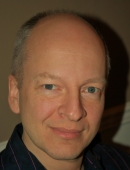Clemens Szyperski, Microsoft

Clemens Szyperski has worked as an academic, as an entrepreneur, as a consultant, as a researcher, and as a software architect. Some argue that he must be of feline nature and that there must be some more lives coming. He received his PhD in Computer Science from the Swiss Federal Institute of Technology (ETH Zurich) in 1992 under Prof. Niklaus Wirth's advice. He held a postdoc scholarship from the ICSI, Berkeley and served as Associate Professor at QUT, Brisbane, Australia. He joined Microsoft Research as a Software Architect in 1999. His team moved into a product incubation phase in 2001 and began production development in early 2003. A first product developed in an entirely new way has been released together with the new 2007 Office System. Since late 2005 he is now working on the "Oslo" modeling platform in Microsoft's Business Platform Division.
His focus is on the end-to-end issues of composable software and the building of new kinds of software. He maintains an affiliation with Microsoft Research and continues his general activities in the wider research arena. His Jolt-award-winning book Component Software (Addison Wesley) appeared in a fully revised and extended second edition in late 2002. Software Ecosystem (MIT Press), co-authored with Dave Messerschmitt of UC Berkeley, was published in mid 2003. Clemens served on and chaired numerous program committees, including CBSE, ECOOP, ESEC/FSE, ICSE, ISAS, OOPSLA, QoSA, and WICSA. He is an editor of Springer's Lecture Notes in Business Information Processing. He served as assessor and panelist for national funding bodies in Australia, Canada, Ireland, the Netherlands, and the USA. He is a cofounder of Oberon Microsystems and its publicly-traded spin-off esmertec.

